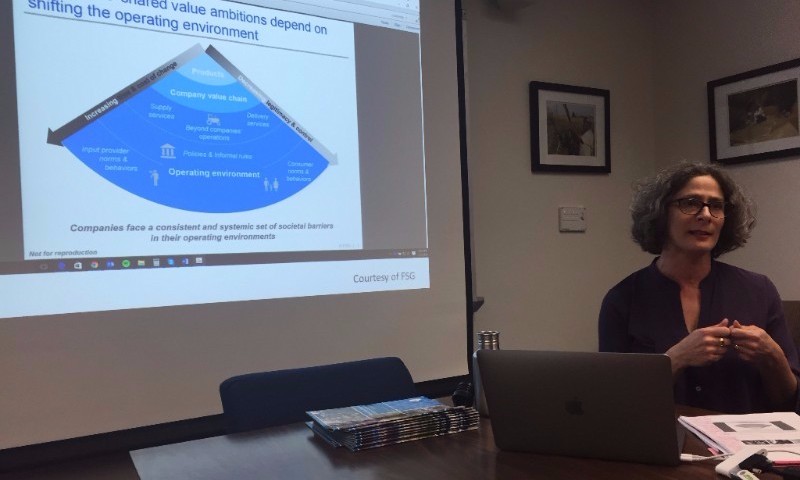On Monday October 23, Natasha Sokolsky from the Pact Institute presented “Friend or Foe? The New Role of Corporations in Africa’s Development and Mining Sectors: Case Studies from the INGO Shared Value Perspective,” at the SCAD working group meeting. The Pact Institute is a 45-year-old NGO that supports projects in health and international development in 30-35 countries throughout Africa and Asia. It approaches the idea of a pact as a “promise” and partnerships are evaluated for their shared value for both groups involved. The Pact Institute attempts to work with companies to help them understand more about the groups they want to work with.

Sokolsky discussed some of the ethical approaches used by the Pact Institute. They believe that where money comes from is as important as what it is used for, and they will not accept funding that could help legitimize a practice with which they disagree or feel is harmful. The staff at Pact Institute has to determine whether it is ethical to work with companies they engage with as partners. Sokolsky asks herself whether it is ethical to use the products of these companies with the belief if she does use the products, it is better to influence the supply chain to make a positive impact on the company.
Sokolsky’s work focuses on artisanal small-scale mining. Although it comprises 10% of the world output, artisanal miners make up 90% of the mining workforce, and 40% of all artisanal small-scale miners are women. This type of mining is prevalent in the Democratic Republic of Congo and faces challenges such as child labor, community conflict, illegality, environmental degradation, poor safety practices, poverty, and conflict minerals. The Pact Institute asks, how does the industry respond to these challenges? Through this question, the Pact Institute attempts to increase engagement, identify leverage points in supply chains, and improve understanding of local contexts. The two projects Sokolsky currently works on focus on 1) occupational health and safety in artisanal small-scale mining and 2) child labor in 3T (tin, tantalum, and tungsten) mines.